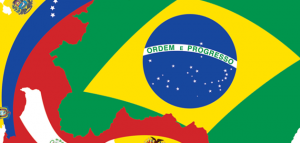The business world now more than ever understands the importance of being inclusive and the positive impact it has for the world and for the business. That means companies are looking to turn their products and services inclusive to everyone, so, all the people could have the ability to reach, approach, use, and understand it.
CEOs and successful leaders are worrying about how to maximize profits and create purpose-driven brands. They might be asking themselves how to incorporate inclusion into the company’s DNA. All kinds of businesses, no matter their size, can start by taking responsibility, prioritizing it, and working together to achieve that.
This is reflected in Mastercard’s latest payment product. The Touch Card is part of a broader effort to demonstrate that inclusiveness isn’t just good for society, it’s also good for the business.
To be effective, it has to solve real-world challenges
Recently, Mastercard announced the Touch Cards, a new design that helps people with sight-impairment orient their bank card and quickly determine whether they are using a credit card, a debit card, or a prepaid card, all thanks to one simple design element.
According to the Mastercard website, the design relies on a system of “notches” on the side of each card type to help consumers identify the correct one:
- Credit cards have a round notch
- Debit cards have a broad squarish notch
- Prepaid cards have a triangular notch
The standard has been designed to work within POS terminals and ATMs, ensuring it can be deployed at scale.
Mastercard worked with The Royal National Institute of Blind People in the U.K,. and VISIONS/Services for the Blind and Visually Impaired in the US to make sure the solution would be effective.
Moreover, the team dismissed using Braille as an option on the surface of the card because only one in ten blind people can read Braille.
Having the right partners, paying attention to the customers’ real needs highlights an important step in the company’s quest for inclusivity.
For companies to be able to solve real-world challenges, the solutions have to be truly effective. It can be simple, does not have to be complex, but it has to be effective.
It should be part of the company’s DNA
In June 2019, Mastercard also introduced True Name, which allows the transgender and nonbinary community to choose the name that appears on their cards without the need of a legal name change.
According to Raja Rajamannar, Mastercard’s chief marketing and communications officer, “we have a responsibility to ensure that the digital economy is enabled for all.”
For the real impact to happen, it has to be embedded into companies’ DNA and shared with many areas so everyone is working towards the same direction.
The efforts that global corporations are making can impact the entire world’s challenges, from hunger and health to global warming and accessibility.
It is also good for the business
Accessibility can be seen as a smart business decision as well.
According to Braille Works accessible practices can be good for everyone and including more people in your business can give you access to a larger pool of potential customers.
There are many benefits that come with accessibility that are beyond legal protections, such as helping society to be better, building relationships in your community, and knowing your customer preferences.
Moreover, 63% of consumers surveyed in an Accenture study revealed that they preferred to shop from purpose-driven brands.
Companies that invest in having meaning in their products and services and invest in transparence in their commitments improve competitiveness
How did this action garner the attention of many people, including myself?
I’m responsible for Rock.org, Rock Content’s social impact arm, and for that reason, I love following trends about social impact, diversity, and inclusion that are happening in the market.
At Rock Content we have the goal to upskill students in digital marketing and sales skills. We want to make learning opportunities accessible to everyone. So far, we have positively impacted more than 50,000 people in socioeconomically vulnerable conditions through courses, mentoring, and volunteer actions.
It is inspiring to see many companies, from different segments and sizes, working for a better and more inclusive world.
What can we learn from that?
- Start by making it a priority, open space for discussion between the leadership like product accessibility, social responsibility, and inclusive practices in general
- Align with the strategic vision of the company. It should reflect your business
- Make someone responsible for that goal. Having exclusive energy will make it move faster;
- Keep in mind that inclusive communication and actions don’t work if it’s not authentic;
- Then, bring the leadership aboard.
After building a solid and genuine structure to enable change, communicate about it through a variety of channels.! The world needs to get inspired by those positive examples.
Let’s be a force for good!If you are interested in learning more about the social impact we make here at Rock Content, just visit our Rock.org website.







